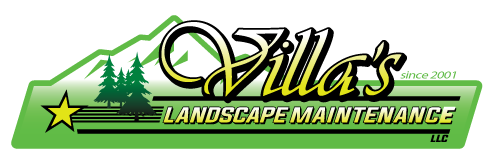About Villa’s Landscape Maintenance:
Your Partner in Outdoor Perfection
Villa's Landscape Maintenance LLC has transformed yards across the Rogue Valley, OR, area into breathtaking outdoor spaces for over two decades. It's more than a job for us - it's our passion. Whether you have a sprawling estate or a cozy backyard, we'll work tirelessly to craft a landscape you'll cherish. Call 541-973-5140 to discover more!
Why Choose Villa's Landscape Maintenance?
We Listen: Every single yard tells a story. We begin by carefully understanding your unique vision and needs.
Expert Craftsmanship: Our team boasts years of experience. We take pride in our attention to detail and beautiful results.
Customer Focused: You aren't just another client but our neighbor. We treat you and your property with respect.
Open Communication: From clear expectations to honest timelines, we keep you updated every step of the way.
Expert Lawn Care Since 2001
Founded by Manuel Villa, an Oregon native with a lifelong love for green spaces, Villa's Landscape Maintenance LLC began with a simple principle: create stunning landscapes while building lasting relationships. That principle still guides us today.
More Than Just Lawn Care
We go beyond mowing and trimming. Our dedicated team offers:
Lawn Maintenance and Revitalization
Flower Garden Creation & Upkeep
Tree and Shrub Care
Bark Delivery, Installation & Prep
Seasonal Yard Cleanup
...And Much More!
Ready to See Your Landscape Dream Blossom?
We're here to make your yard the talk of the neighborhood. Contact Villa's Landscape Maintenance LLC today for a free consultation and estimate. Let's start this beautiful journey together!
Your Lawn Care Dictionary: Understanding the Basics
Maintaining a beautiful lawn takes know-how! Our Villa's Landscape Maintenance LLC team wants you to feel like a pro.
We've created this handy glossary of standard lawn care terms.
Aeration: Poking tiny holes in your lawn's soil to let air, water, and nutrients reach the roots easily. This leads to a healthier, stronger lawn.
Broadleaf Weeds: Pesky intruders like dandelions or clover that take resources away from your grass. Don't worry; there are strategies to say goodbye to weeds!
Crabgrass: An annual grassy weed that loves hot weather. It spreads quickly and spoils a uniform lawn.
Fertilizer: Like vitamins for your lawn! Fertilizer gives your grass the nutrients it craves to stay green and thriving.
Micronutrients: Minerals your lawn needs in small amounts for its best health (think iron or zinc).
Mulch: A protective layer (like wood chips or bark) spread around plants. Mulch helps keep the soil moist, fight weeds, and look tidy.
Pre-emergent Weed Control: Products applied before weeds pop up. Stop the problem before it begins!
Reseeding: Planting new grass seed to thicken existing lawns or repair bare spots.
Soil Enrichment: Boosting your soil's superpowers with compost and other additions for healthier plants.
Need More Help?
Think of Villa's Landscape Maintenance LLC as your lawn care partners in Medford, OR. Got a lawn puzzle that's got you stumped? We're always happy to chat and find the perfect solution for your yard.
Schedule a free lawn consultation, call 541-973-5140 today!
QUICK LINKS
BUSINESS INFO
Phone: 541-973-5140
Email: villalandscaping1@yahoo.com
Location: Medford, OR
Business Hours:
Mon-Sat: 7:00 am – 6:00 pm
Sun: Closed




